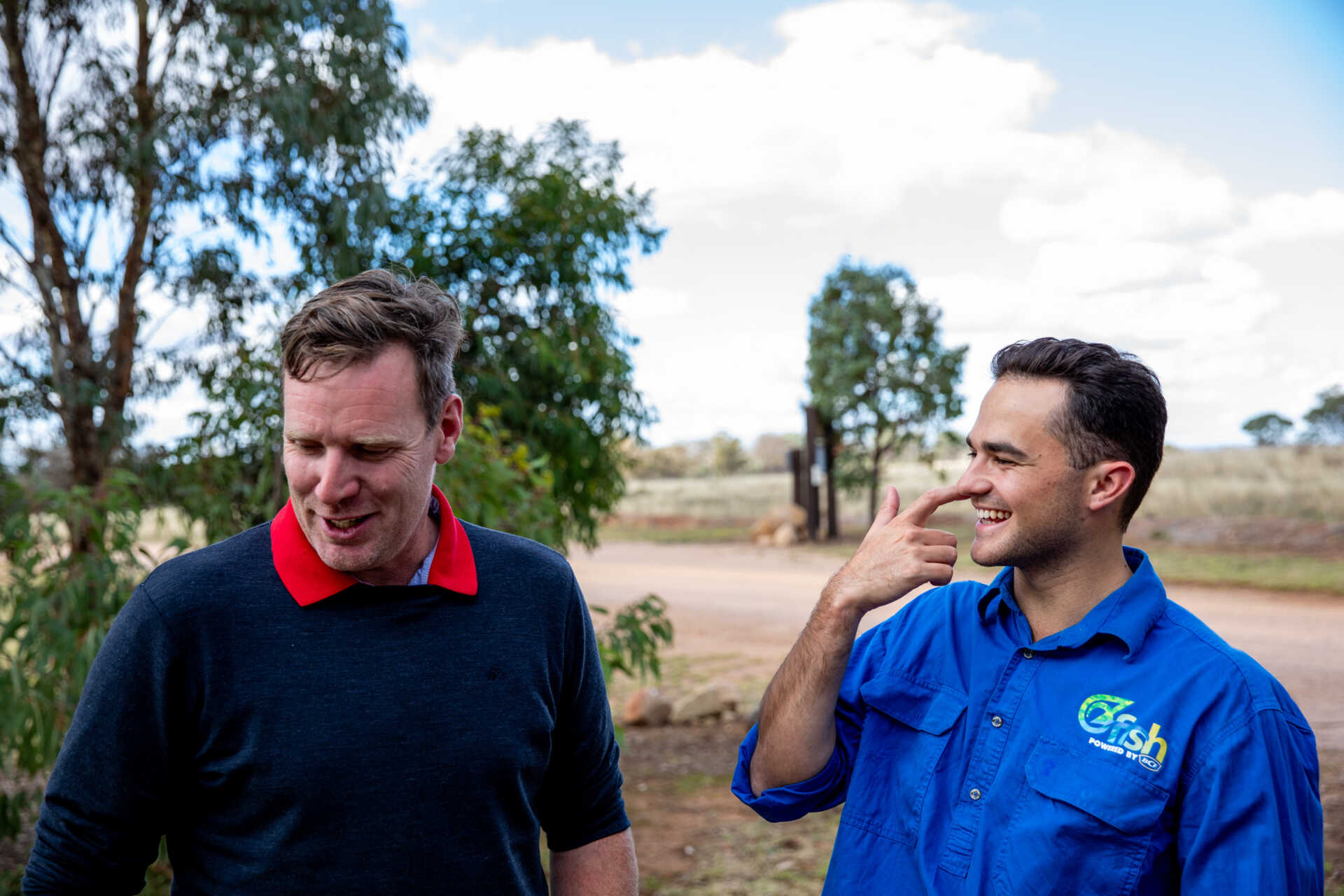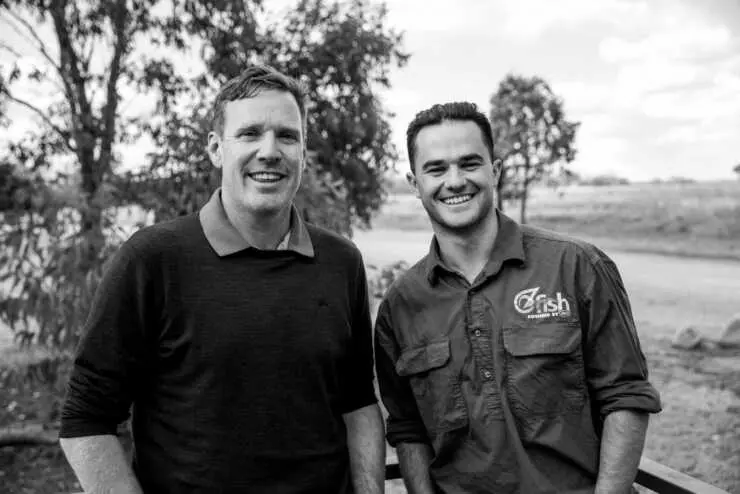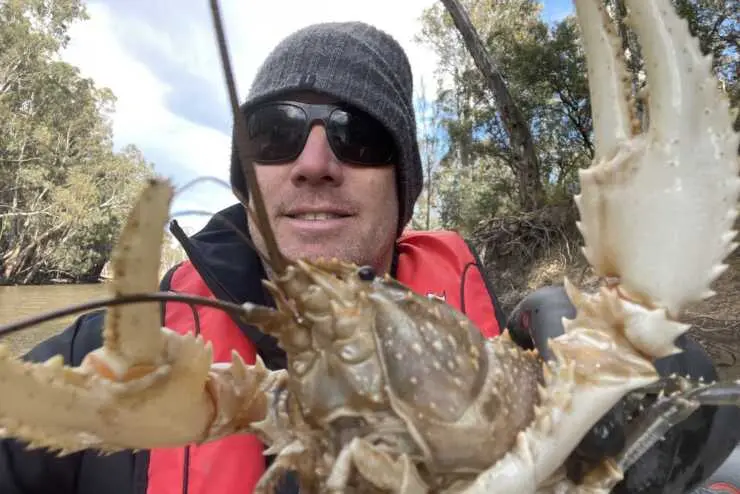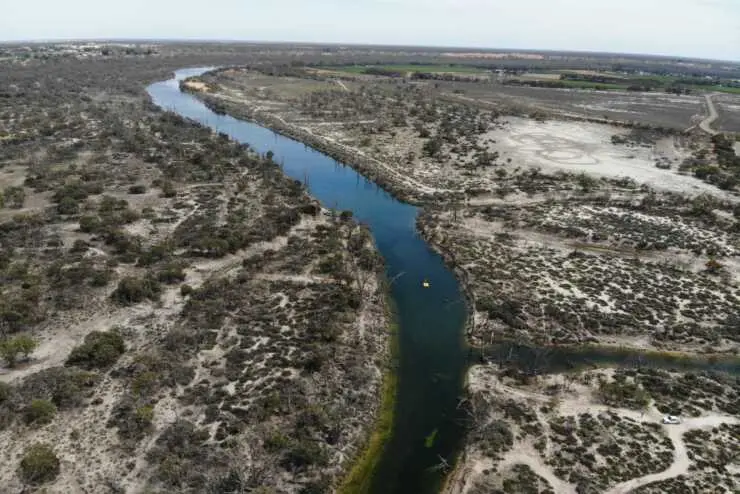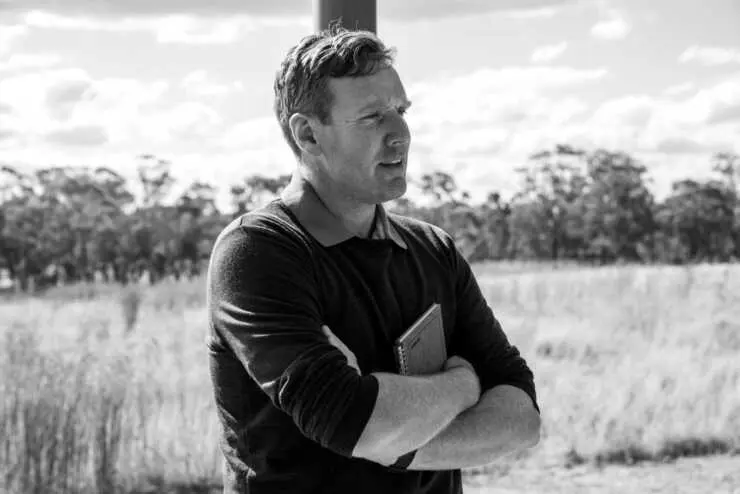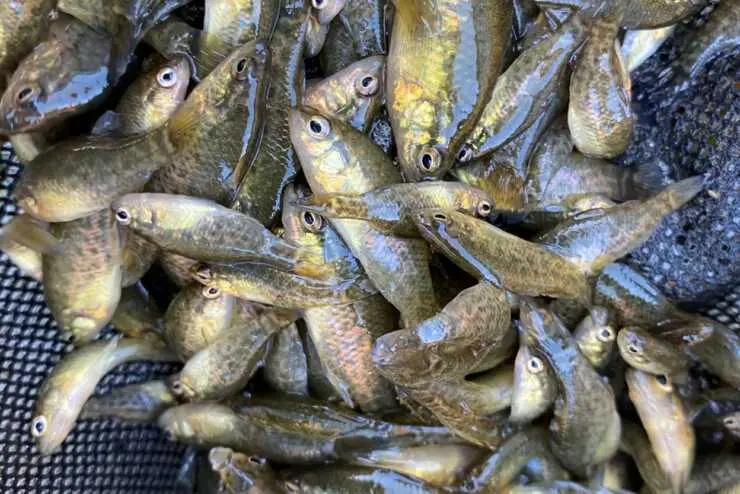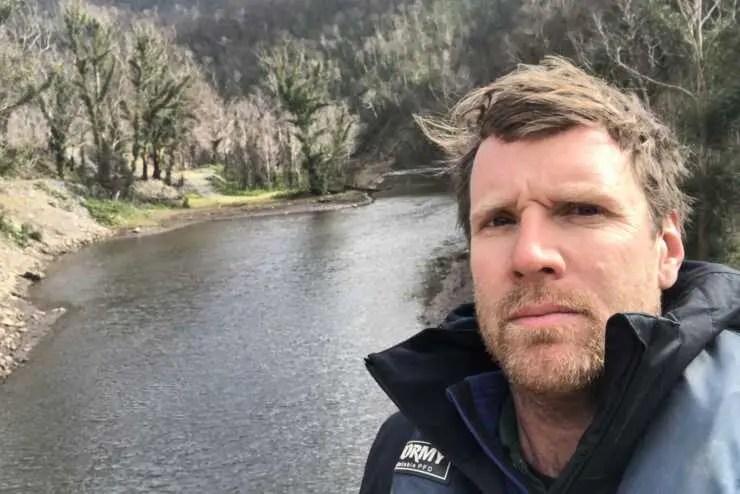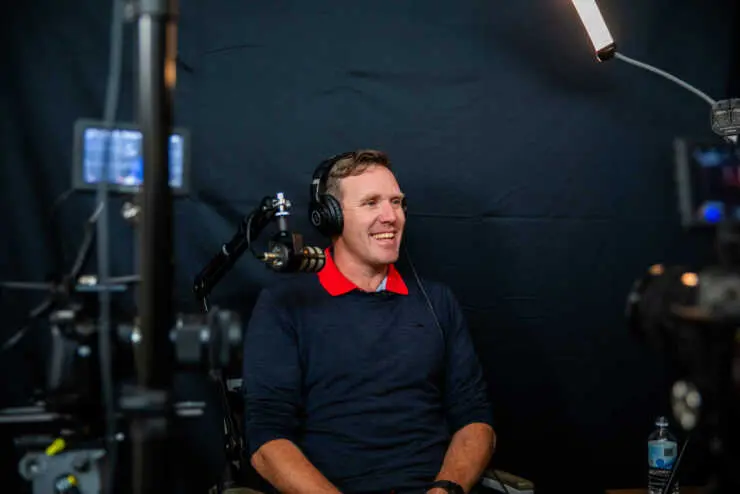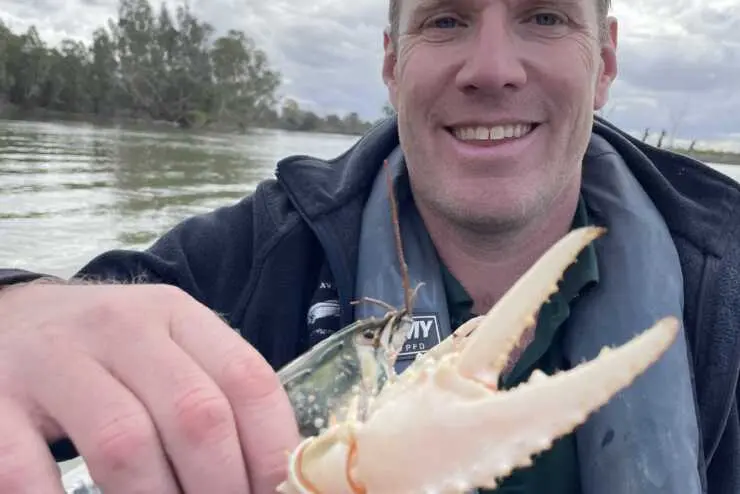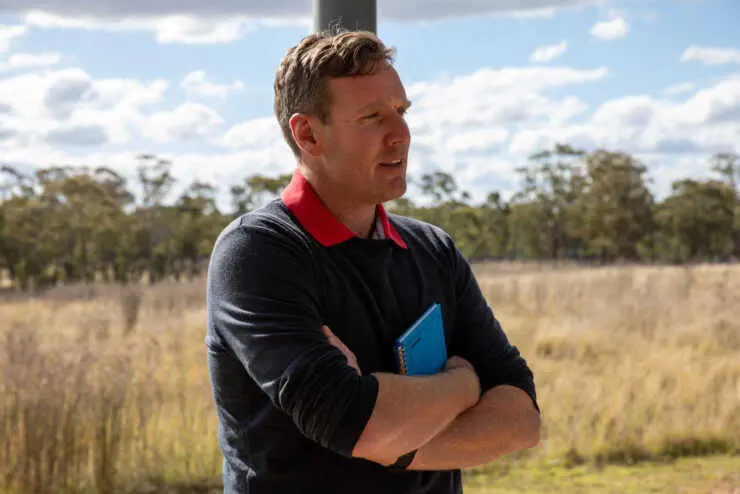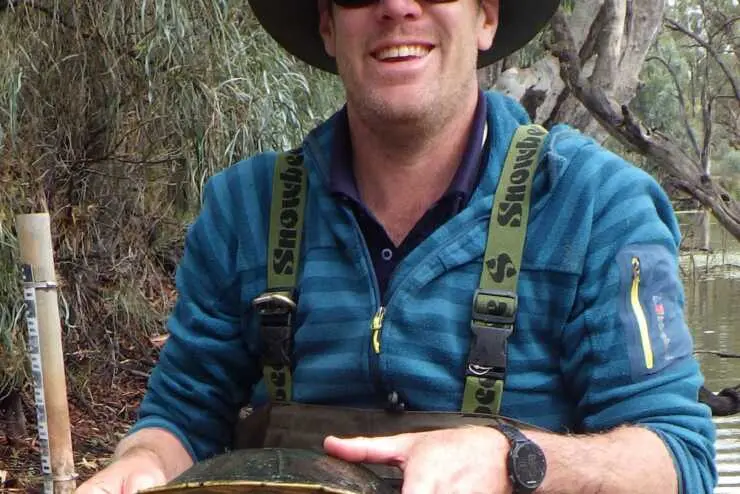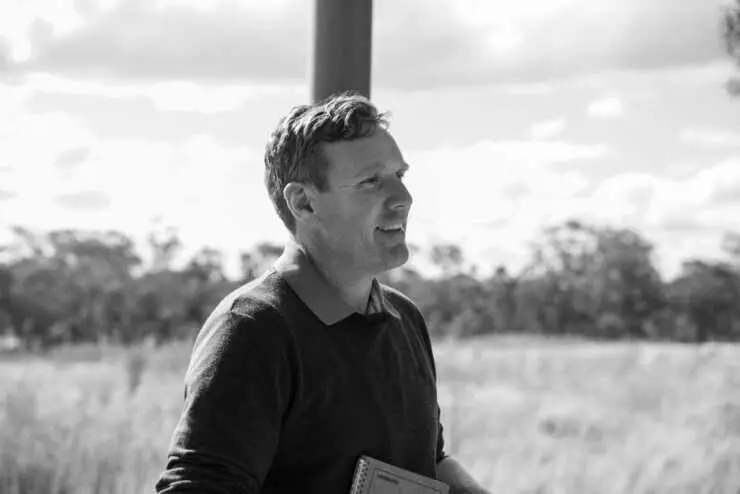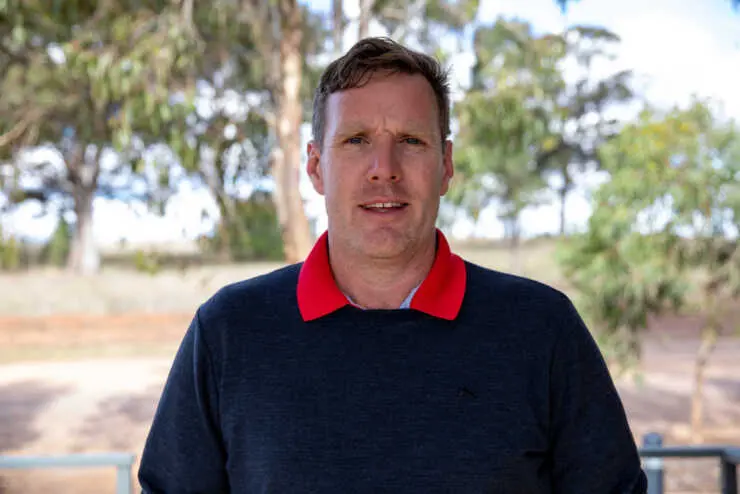Join us on this episode of OzCast as we look beneath the surface at the often-overlooked realm of small-bodied threatened fish species in Australian waterways with Dr. Nick Whiterod, a seasoned marine ecologist with over twenty years of dedicated research and conservation efforts.
Dr. Nick Whiterod holds a PhD from Charles Sturt University, assessing the bioenergetic implications of large impoundments on Murray cod. His career has been marked by a profound commitment to the conservation of Australia’s freshwater ecosystems, particularly focusing on small-bodied fish and crayfish species. His work extends beyond mere research; he has played a pivotal role in the national conservation listing of more than 50 freshwater species.
Dr. Nick Whiterod
Throughout the episode, Nick offers a detailed exploration of the Murray-Darling Basin’s complex ecology, shedding light on the essential connectivity between freshwater and other marine environments. Dr Whiterod covers how recent ecological events, including the mass carp wash-up, have impacted the basin and the role of fishways in maintaining vital species movements.
A significant portion of the conversation is dedicated to understanding the terminology related to conservation. Dr. Whiterod clarifies the meaning of ‘threatened’ species, delving into the formal classification process, the criteria for such designations, and their impacts, including legal protections and funding access. He discusses the importance of periodic reassessment of species’ statuses and the broader implications of these classifications.
Dr. Whiterod’s expertise is not limited to conservation alone; he is widely recognised for his skill in species reintroduction and managing complex ecosystems. His approaches and methods in reintroducing species to their native habitats have contributed significantly to the recovery of threatened species like the Southern Purple Spotted Gudgeon, Southern Pygmy Perch, Yarra Pygmy Perch, and Murray Hardyhead.
During the podcast, Nick explains the role these species have as vital indicators of ecosystem health and the concerning implications of their decline. The conversation extends to how the restoration of these fish populations can benefit the basin’s overall health, and what their presence, or absence, reveals about water quality and environmental management.
A focus of the discussion is the rediscovery of certain fish species in the Murray-Darling Basin, particularly the Southern Purple Spotted Gudgeon. Dr. Whiterod shares how these species, once common, have become rare in certain areas, with occasional surprising reappearances. The impact of habitat changes due to events like the Millennium drought and human efforts in conservation, including captive breeding and reintroduction, are examined. He also touches on the intriguing presence of northern fish species, like Barramundi, in southern waterways, raising questions about their survival and adaptation in unfamiliar habitats.
In looking to the future, the podcast delves into the threats posed by introduced species on native fish populations, focusing on the predatory habits of Redfin Perch and Trout. Dr. Whiterod discusses the threat to native species such as the Purple Spotted Gudgeon and Pygmy Perch, their dwindling numbers, and the factors contributing to their decline, which includes habitat destruction and disease.
Throughout the episode, Nick provides an insight into the work he has completed in this area, speaking on the importance of maintaining ‘insurance populations’ to safeguard against potential losses down the track. Emphasising the importance of local conservation efforts, Dr. Whiterod underscores the role of individuals and community groups in protecting vulnerable populations, encouraging listeners to support threatened species in their local waterways.
An underlying theme in the interview is the bridging of the gap between scientific research and community involvement. Dr. Whiterod stresses the importance of translating scientific knowledge into actionable strategies that individuals and communities can undertake. He emphasises that conservation is not just the responsibility of scientists and policymakers but is a collective effort that requires widespread community engagement.
Dr. Whiterod expresses cautious optimism about the future of Australia’s aquatic ecosystems. He acknowledges the challenges posed by climate change and habitat loss, but remains hopeful due to increasing awareness and ongoing conservation efforts. His message underscores the importance of continued research, public education, and dedicated conservation actions to protect these vital ecosystems.
Like to watch as well as listen? Check out the video of the podcast below.
Talking points:
-
- The critical role of small-bodied fish in ecosystem health.
- The impact of habitat destruction and disease on fish populations.
- The concept and importance of ‘insurance populations’.
- Success stories and challenges in species reintroduction.
- The ecological significance of riparian zones and constructed wetlands.
- The plight of the Murray crayfish and conservation efforts
- Community involvement and its significance in conservation efforts.





